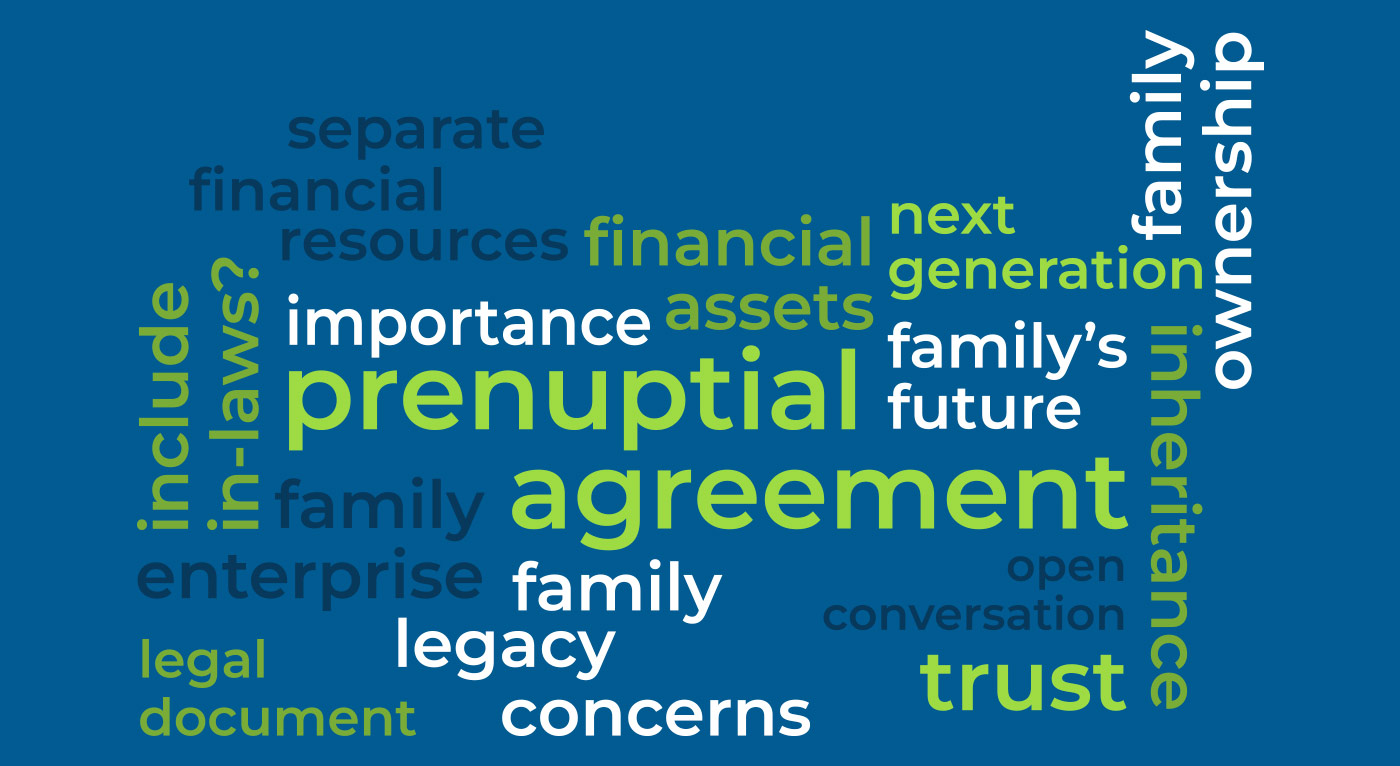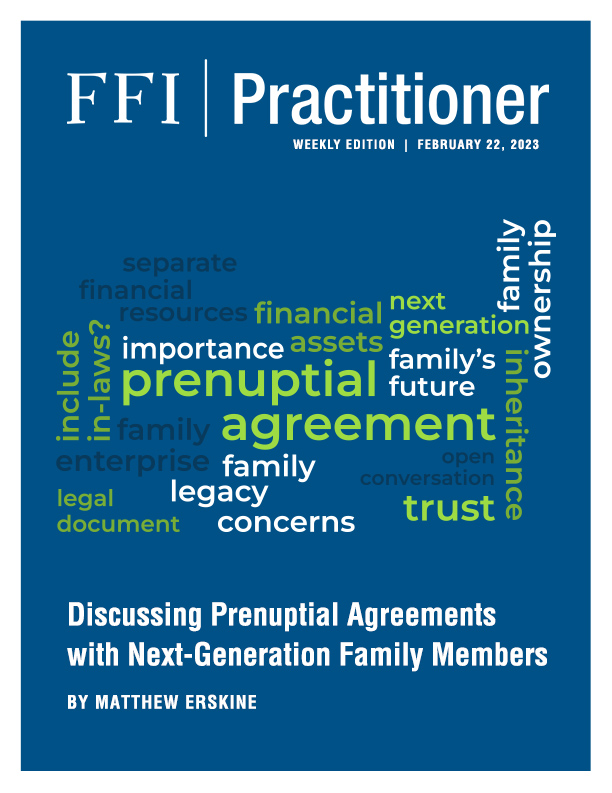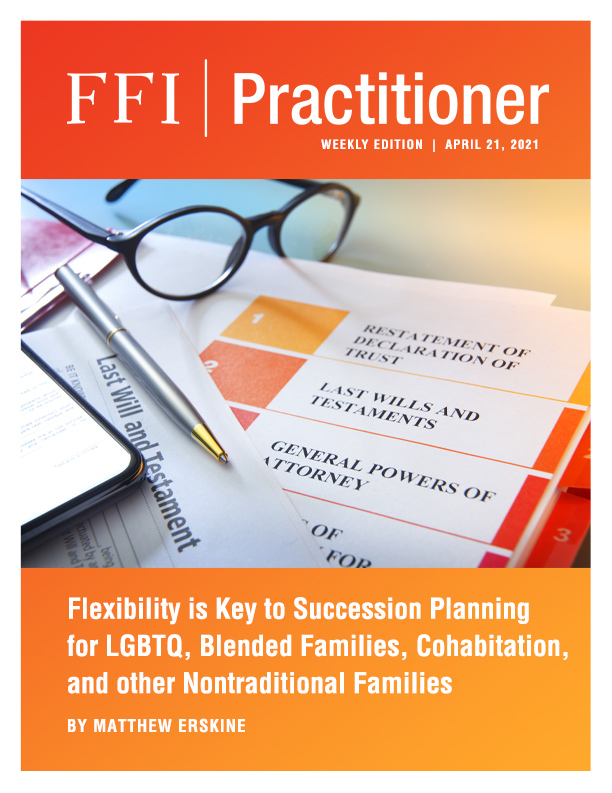
Similar to most legal documents, prenuptial agreements can vary greatly from one jurisdiction to another. For example, even within the United States, individual states may have distinct requirements for the process to create a prenuptial agreement as well as rules governing how various forms of property may be treated in the absence of a prenuptial agreement (i.e., community property states). The purpose of this article is to provide family enterprise advisors with practical guidance about how to engage their clients in productive discussions with the rising generation about the topic of prenuptial agreements.
One potential method is to say that prenuptial agreements are “just what the family does.” The prenuptial agreement can take the topic of money off the table and allow the marriage to occur for all the other positive reasons like love, friendship, and family. Although well intentioned, this is an approach which does nothing to address the reality that any topic involving money is rife with anxiety.
Sidebar
by Matthew Erskine
- What is the symbolic and practical importance of a prenuptial agreement?
- What does a prenuptial agreement aim to accomplish?
- What worries does the family have about its members getting married/divorced in the future?
- What is the best way to bring next-generation family members into a conversation about a prenuptial agreement?
- Which family member(s) will be allowed to make the final decision about prenuptial agreements for the family? Will the requirements for all family members’ prenuptial agreements be substantially the same?
- What is the family’s approach to the potentially divisive topic of whether to include in-laws in the ownership and control of family wealth?
- What is your dream for the future of your family?
- What is the purpose of inheritance for the next generation?
- How could the next generation maintain separate financial resources and have a viable marriage?
- What obstacles does the next generation see in creating a prenuptial agreement?
The goal is a document that creates a sense of family ownership and a desire to maintain the family legacy. This family conversation can build trust and understanding between the generations, whether or not the family members eventually decide to move forward with prenuptial agreements.
Note
*This article does not address the potentially differing approaches to discussions of prenuptial agreements with family members in the same generation as the founders, although those discussions often are equally necessary for the orderly transfer of family wealth and stewardship of the family enterprise.





